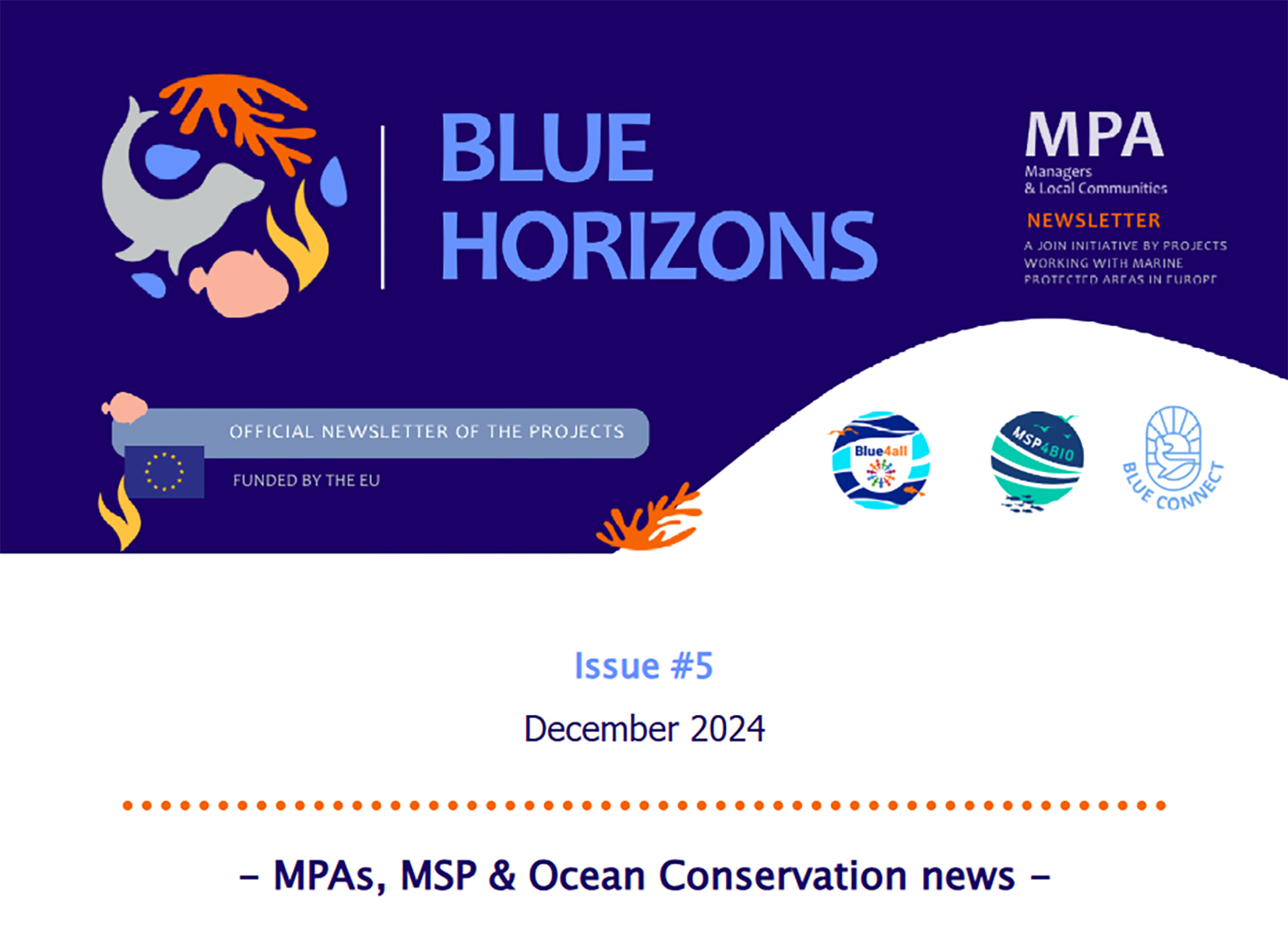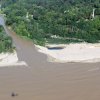Center for Coastal & Marine Studies
WELCOME TO THE FIFTH ISSUE OF THE BLUE HORIZONS NEWSLETTER!
In the 5th Blue Horizon Newsletter we’re thrilled to announce that the Blue Connect project has officially joined our newsletter family! The Blue Connect is co-developing, promoting, and demonstrating a systematic approach to marine conservation planning and management, as well as working with strict protection and blue corridors.
As you will see along this issue, with the excuse of Blue Connect joining we decided to revamp our image and we hope you like it as much as we do.
THE BLUE CONNECT PROJECT WEBSITE IS LIVE!
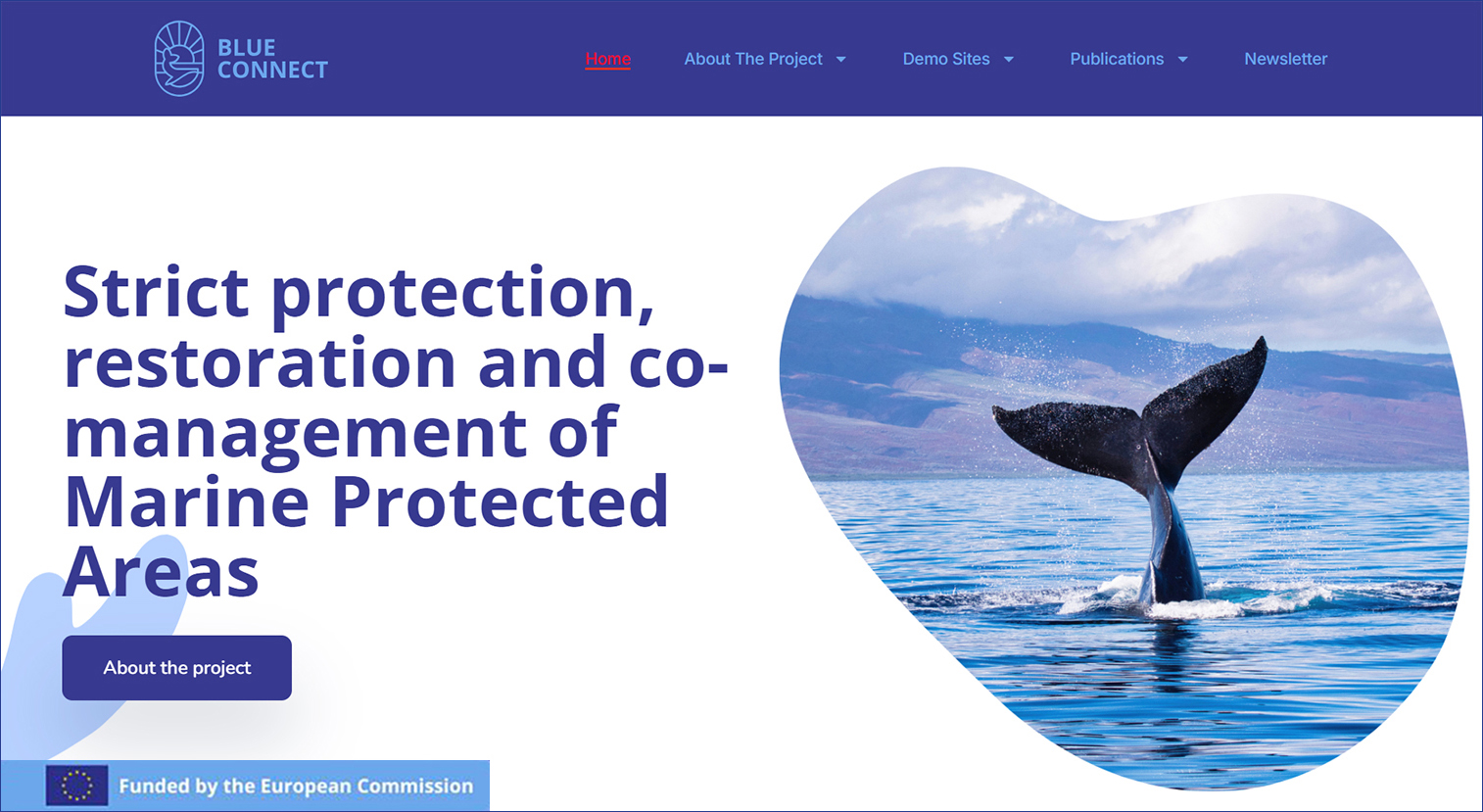
Happy to announce that the BLUE CONNECT Project website (https://blueconnect-project.eu/) has been launched.
Please check out BLUE CONNECT website and discover Insights into the project, Details on our demo sites, Ways to collaborate, Publications, etc.

CCMS represented MSP4BIO & BLUE CONNECT projects at the Mission Arena 3
Two weeks ago, the Mission Arena 3 of the BlueMission Banos took place in Amsterdam, organized by the coordinator SUBMARINER Network, Berlin, Germany. With over 200 participants addressing challenges in the Blue Circular Economy, the MSP4BIO and BLUE CONNECT were proud to be showcased along with BLUE4ALL and MPA Europe projects.
On November 26-27th, 2024, during the 3rd Blue Mission Arena in Amsterdam, the panel session "Connecting Seas: Cooperation and Tools for EU Marine Protected Areas (MPAs)" brought together leading voices from EU-funded projects to address critical challenges and opportunities in marine conservation. This session united representatives from the MSP4BIO&BLUE CONNECT projects, including from CCMS, as well as BioProtect, BLUE4ALL and MPA Europe. Each project showcased groundbreaking tools and methodologies designed to safeguard marine biodiversity while fostering sustainable governance and stakeholder collaboration in Marine Protected Areas across Europe.
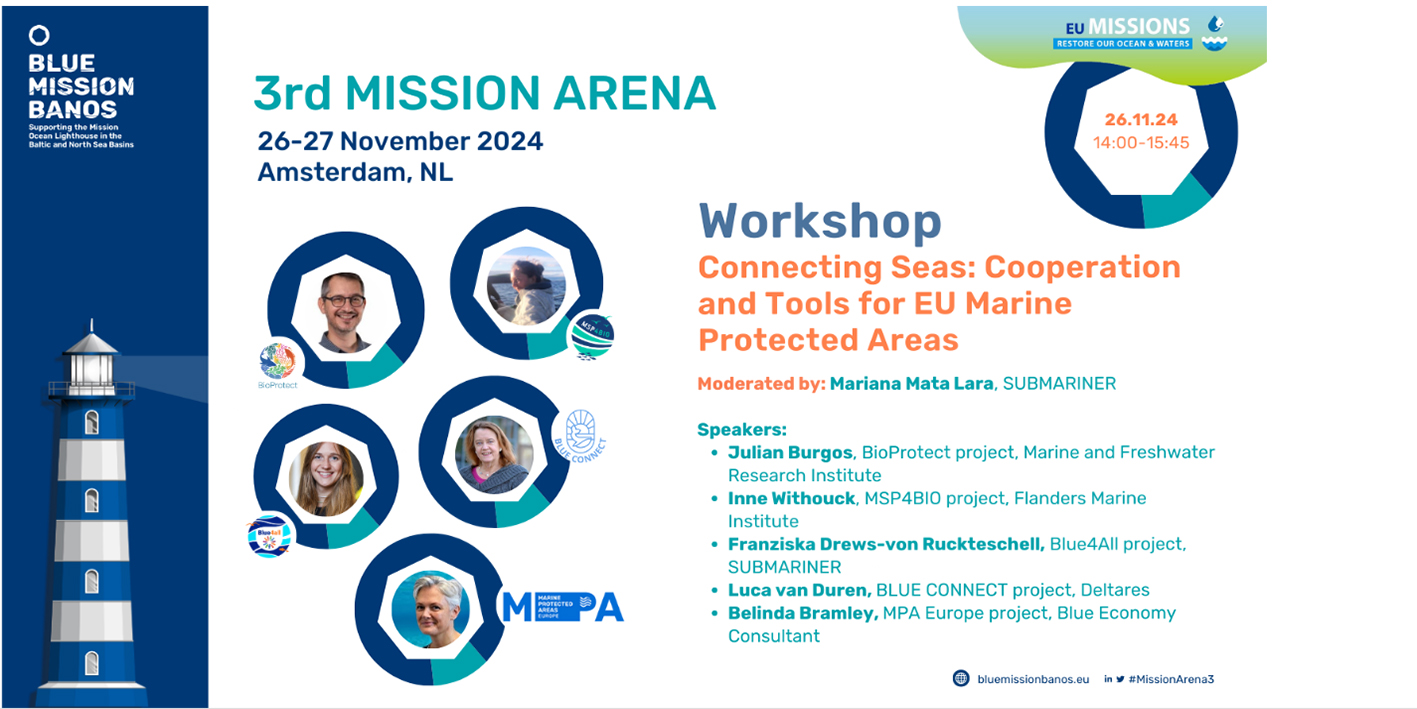
MSP-GREEN CLOSING NEWSLETTER PUBLISHED
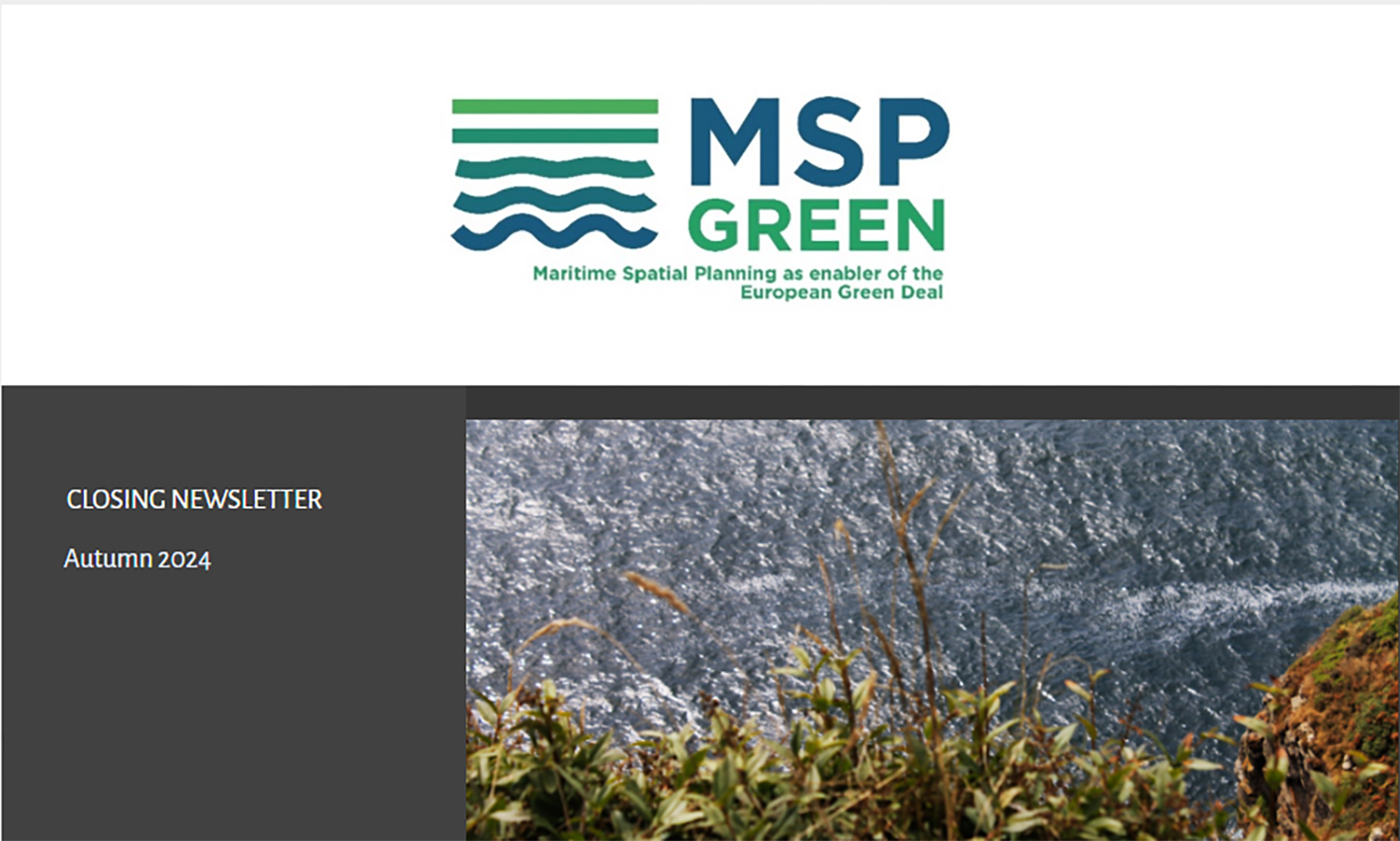
"Two years have passed quickly. However, much has changed since the project's inception, also in the applications of the European Green Deal policy, both at legislative level (e.g. approval of the Nature Restoration Law, that came into effect on August 2024) and in the response of the society (e.g. Europe is decarbonising at an unprecedented pace, with 74 % of electric power coming from renewable and low-carbon energy sources, marking a significant increase compared to the 68% share in 2023). Over these two years, we collaborated with many ongoing European initiatives focused on maritime transition and marine management. Dedicated teams from all participating countries spent remarkable efforts in ensuring that project’s results were produced on time, consistently and widely disseminated. In this work, we were also supported by inputs from our Advisory Board, DG Mare, and CINEA. After two years of work, we remain convinced—and our successful joint final conference with Regina-MSP confirmed—that the path initiated by MSP-GREEN, in making Maritime Spatial Planning an enabler of the Green Deal, is essential for achieving sustainable transitions at sea. The recent climate emergencies underscore the urgency of winning the Green Deal, and the way forward is clear. The sea horizon, is green, indeed."
On behalf of the MSP-GREEN Project Coordination, November 2024
The following Newsletter encloses the MSP-GREEN project, but its' mission continues...
Discover below to gain recommendatory information and important reflections from our partnership!
Read the full newsletter here!
























